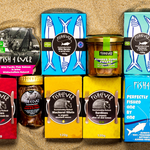You have no items in your shopping cart.
When it comes to the climate crisis, we’re all in this together. Everything we do – everywhere we go, the stuff we buy, the way we work – has a carbon price tag. The core solution though is blindingly obvious: switch off the fossil fuel tap and plug in to green energy.

About 3/4s of global emissions comes from energy – fossil fuels basically, that’s oil, gas and coal - used in the transport that moves us and the goods we buy, that heats our homes and powers our factories and businesses, gives us jobs, food, gadgets and everything else we consume. Our economy and our lives
are literally drenched in the stuff, carbon is embedded in our everyday life; removing carbon from our lives is like trying to remove the blue vain from a stilton cheese – almost impossible. What we need to do is kick the fossil fuel habit. Fast.
To do this the number one responsibility falls to governments. They make the energy and infrastructure policies and the rules. The Paris agreement led to a global agreement that human caused global warming should be limited to 2% but the problem is that 2% already implies significant negative impacts. One stand out fact? A baby born in the 1960’s will experience 5 extreme heat waves years in their lifetime but a baby born in 2020 will experience 30. That’s why many experts are wanting a target limit of 1.5% to human-made GHG levels.
Project Drawdown is a go-to information source we strongly recommend for anyone wanting to understand the big picture on climate change with useful summaries and great video tutorials. The idea of drawdown is the point or year at which that curve (on a standard graph) which shows global heating,
climbing ever higher, switches, slows and then, sigh of relief, starts to fall back down. That’s where we need to be – the sooner the better. The great news is that new energy projects from wind and solar are now more economically viable, i.e., cheaper, than fossil fuels, and battery storage prices are tumbling down. In 2000 more than 80% of Denmark’s electricity generation came from fossil fuels but by 2020 this had flipped completely to 20%. Basically, the rest of the world has to go in the same direction – and do it quickly.
BUT electricity production is only a small share of total energy use; think gas to heat homes and power factories and oil or diesel to power your cars. Here Denmark is still 70% dependent on-fossil fuels. If the near future for transport is EV’s and we’re supposed to get rid of gas boilers and move to heat pumps then this means we basically need to generate one hell of a lot more electricity from renewable sources. That’s the challenge. Governments globally need to get on board and drive the transition forward.
Let’s hope Cop26 in Glasgow gets the commitment wheel turning. So, what can individuals do? Your pensions and money count, the more you have, the more they count. You can start transitioning your home power and vehicles, if the boiler needs switching go for a heat pump, not a new gas boiler. For a two-car family with most trips local? Then one definitely should be an EV. We can make better food choices and better travel and general consumption choices. Also offsetting isn’t the disaster some make it out to be; do plant trees and invest in other Co2 reductions, it genuinely works – but choose a good charity.
Don’t forget the power of protest: the climate movement has really got global warming on the agenda: nobody likes to be stuck on a motorway if it’s blocked by protestors but, without going into the ethics or not of such protests, don’t be a mini Daily Mail or Priti Patel idiot, blind to the bleeding obvious – remember above all else this climate crisis will affect each and everyone of us, it is killing and will kill many more people and doing almost irreparable damage to the planet; that’s why a whole number of governments, towns, counties and companies have declared a climate emergency.
What can companies do? Like individuals, not that much – but to borrow the words of Tesco’s “every little helps”. All the Net Zero commitments are important, all the votes in favour of transitioning to a green economy significant. We at Organico, definitely prefer to support the pioneers or authentic voices, there’s something a little bit hollow when you hear that a BP or Shell wants to be the greenest company in the world but in the end finger pointing and blame won’t get us very far and risk deflecting us all from the main point which is to stop the global economy’s addiction to fossil fuels now. We’re all in this together. At Organico one of the proudest bits of our net zero policy is our commitment to invest money each and every year, before we hand out dividends, or buy ourselves new Tesla’s, in companies that generate and build 100% renewable solar and wind power. Because we don’t own fields or factories, trucks or vans, the best we can do is invest in the transition of the energy supply at grid level. We guestimate that in this, our second year of being Net Zero, we’ve covered about 12.5% of the emissions of the products we buy, that’s on top of our offsetting and other actions. It’s a small step in the right direction with the hope to get to 50% by 2030 with the other 50% coming from the general decarbonisation of energy. In the meantime we have a robust offsetting policy which supports climate refugees, eco-system restoration or regenerative agriculture and is aiming to plant 1⁄2 million mangrove trees before 2025.













